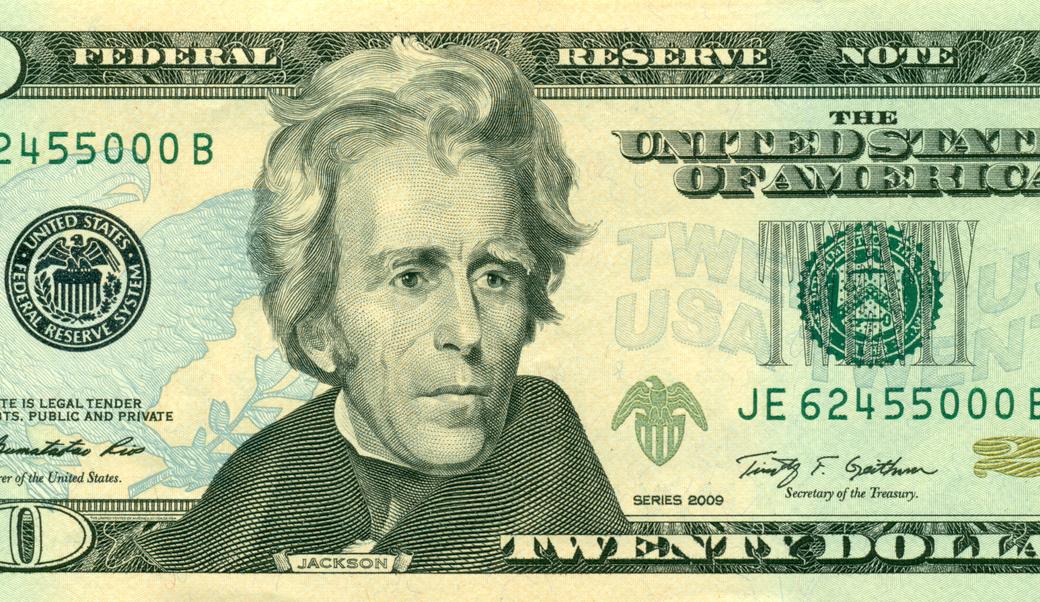Andrew Jackson: Campaigns and Elections
The Campaign and Election of 1824:
The Virginia presidential dynasty was coming to an end with the second term of James Monroe. Three seasoned members of his cabinet vied for the succession: Secretary of State John Quincy Adams of Massachusetts, Secretary of the Treasury William Harris Crawford of Georgia, and Secretary of War John C. Calhoun of South Carolina. Henry Clay of Kentucky, the brilliant Speaker of the House of Representatives and a rival of Jackson's for popularity in the new western states, was also an aspirant.
Compared to these men, Jackson had scanty qualifications as a statesman, with only brief and undistinguished service in Congress and as a territorial governor. Where all Presidents since Washington had served extensive administrative and diplomatic apprenticeships, Jackson had never held a Cabinet post or even been abroad. He spoke no foreign languages and even wrote English roughly. On the other hand, his heroics as a general had a far greater hold on the public imagination than the governmental experience of his competitors.
All five men were Jeffersonian Democratic-Republicans, but in the absence of organized opposition, party affiliation had ceased to be much of a political marker. In past years, Jeffersonians had selected their presidential candidate through a congressional party caucus. Held in Washington where congressmen were gathered anyway, the caucus was a convenient mechanism to unite the party against the Federalist foe. But the withering of Federalism after the War of 1812 had undercut its rationale. Once seen as a necessary device for ensuring victory, the caucus now seemed a gratuitous intrusion upon the popular will, a means to deprive the voters of any meaningful choice at the polls. A poorly attended caucus nominated Crawford in 1824, but his consequent image as the insider's choice rather harmed than helped his chances. Other candidacies were put in play by various means. The Tennessee legislature nominated Jackson for the presidency in 1822 and, to burnish his credentials, elected him to the Senate the next year.
There was no organized national presidential campaign in 1824. Candidacies built on a regional base: Adams was the favorite in New England, Jackson in the Southwest, Clay in the Ohio valley, Crawford in his native Virginia. Calhoun dropped out, settling for the vice-presidency on the Adams and Jackson tickets. Following tradition, the candidates did not actively seek votes or make promises. Jackson and Adams were generally understood to support the current Monroe administration, Crawford (despite his Cabinet post) and Clay to oppose it.
Many political professionals, especially Clay, did not take Jackson's candidacy entirely seriously at first. The returns showed their mistake. He proved to be the only aspirant with a truly national popular following. Along with the entire Southwest, Jackson carried Pennsylvania, New Jersey, and the Carolinas, for a total of eleven states out of twenty-four. He led the field with 43% of the popular vote and 99 electoral votes, less than a majority. Adams ran second, with 84 electoral votes. Crawford had 41, Clay 37.
Since no candidate had a majority in the electoral college, under the Twelfth Amendment to the Constitution the choice between the top three now fell to the House of Representatives, where each state delegation cast one vote. Speaker Clay, out of the running, announced his support for Adams, warning that Jackson was a mere "military chieftain" unfit by training or temperament for the presidency. With his aid, Adams drew the votes of thirteen states—a majority—on the first ballot in the House. Promptly Adams named Clay secretary of state, the traditional stepping-stone to the presidency. Jackson swore that a "corrupt bargain" had swindled him out of the office. Promptly he began to gird for a rematch in 1828.
The Campaign and Election of 1828
The four years of the John Quincy Adams administration constituted one long, acrimonious, and in the end, one-sided presidential campaign. Determined not to be paralyzed by his status as a minority President, Adams overreached with controversial policy initiatives. He threw his support behind the "American System," Henry Clay's program of congressional aid to economic development through transportation subsidies and protective tariffs. Adams's activism backfired as Jackson and his publicists mounted a cry to clean out the corruptionists and restore purity and economy in government. Major constituencies swung behind Jackson: Vice-President Calhoun and his South Carolina following, Crawfordites shepherded by Martin Van Buren of New York, and disaffected Clay men in the west led by Thomas Hart Benton of Missouri—Jackson's former Tennessee antagonist, now a political ally.
This diffuse coalition included both friends and foes of the American System. To break it, Adams men tried to smoke out Jackson's position. Jackson refused to be pinned down, while his followers fended off questions about his qualifications and experience by touting his battlefield exploits, indomitable patriotism, and opposition to aristocracy and corruption. A good deal of mud was slung on both sides, much of it aimed at Jackson's marriage, his violent escapades, and the incidents of ferocious discipline and of disrespect for civilian authority that dotted his military career. Adams men painted him as a grasping and bloodthirsty character, a budding tyrant in the model of Caesar or Napoleon, whose election would spell the death of the republic. Jacksonians branded Adams as a corruptionist, an aristocrat, and—ridiculously—a libertine. In the end, none of the slanders could touch Jackson's invincible popularity. He won easily in 1828, with 56 percent of the vote and 178 electoral votes to Adams's 83. Jackson carried New York and Pennsylvania as well as the entire West and South. He was the first President elected from west of the Appalachians and, at that time, the oldest man to assume the office. But his victory was touched with grief. As if in response to the torrent of abuse, Rachel sickened and died on December 22.
The Campaign and Election of 1832
Jackson stood for re-election in 1832. By this time he had come out publicly against the American System. He had also created a new issue by vetoing the recharter of the Bank of the United States. The American System men, now calling themselves National Republicans, nominated Henry Clay. A third party also took the field: the quixotic Anti-Masonic Party, formed in reaction to exposures of political favoritism and corruption by members of the fraternal order of Freemasons. Strong in some northern states, the Anti-Masons nominated former attorney general William Wirt. They were generally anti-Jackson, but thoughts of uniting with the National Republicans collapsed when Clay refused to denounce the Masonic order, of which both he and Jackson were members.
The 1832 campaign introduced the national nominating convention in place of the old discredited congressional caucus as a means of selecting a candidate. The National Republicans and Anti-Masons held conventions and adopted formal addresses to the public. Jackson's followers, popularly though not yet officially known as Democrats, met in Baltimore to endorse Jackson's choice of Martin Van Buren for vice president. To show their unanimity, they also adopted a rule requiring a two-thirds vote for nomination—a rule that would later deprive Van Buren of the Democratic presidential nomination in 1844.
Despite the new issues and innovations in party organization, the election was essentially a replay of 1828. Jackson again carried Pennsylvania, New York, and nearly the entire South. He defeated Clay handily, with 55 percent of the popular vote and 219 electoral votes to the latter's 49. Jackson read his victory as a popular ratification of his policies, especially the Bank veto. Opponents chalked it up to his untouchable personal popularity.

